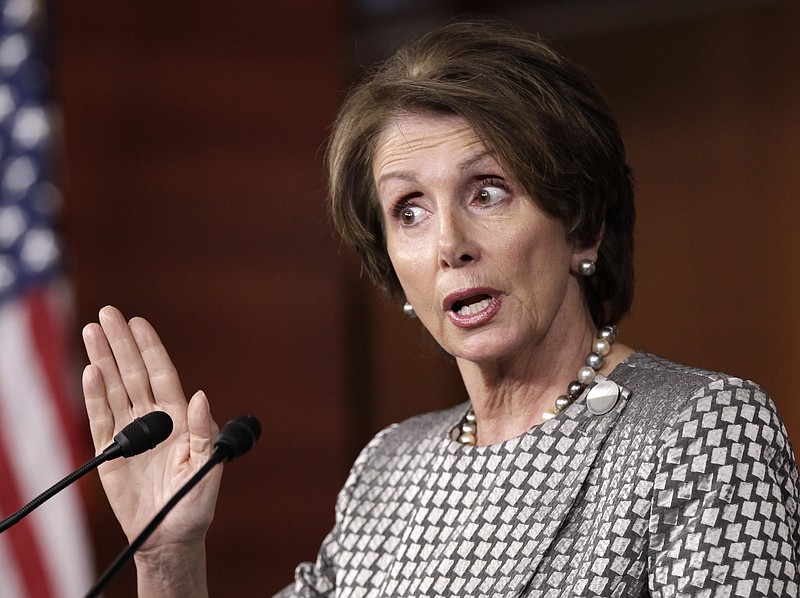WASHINGTON (AP) - Rival deficit-cutting plans advanced by Republicans and Democrats on Congress' secretive supercommittee would both mean smaller-than-expected cost of living benefit increases for veterans and federal retirees as well as Social Security recipients and bump up taxes for some individuals and families, according to officials familiar with the recommendations.
In all, the changes would reduce deficits by an estimated $200 billion over a decade, a fraction of the committee's minimum goal of $1.2 trillion in savings.
A final decision by the panel on legislation to reduce deficits is still a few weeks off, and given the political difficulties involved, there is no certainty the six Republicans and six Democrats will be able to agree.
The two sides exchanged initial offers earlier this week, and each side swiftly found fault with the others' proposal in the privacy of the committee's rooms as well as in public.
House Speaker John Boehner, R-Ohio, noting published reports that Democrats are seeking $3 trillion in higher taxes, said, "This is the same number that was in the president's budget, the same number that - that they - I don't know that they found any Democrats in the House and Senate to vote for."
"I don't think it's a reasonable number," he said. Boehner also chided Democrats for recommending $50 billion in savings from Medicaid over the next decade, well below what Republicans are seeking.
"Let's understand over the next 10 years, we're going to spend $10 trillion on Medicaid. I just think there's a lot more room there to help find common ground," he said.
At the same time, Boehner emphasized, "I am committed to getting to an outcome" that clears the committee and Congress. The speaker negotiated privately with President Barack Obama over the summer in deficit-reduction talks that failed to produce an agreement.
At a news conference of her own, House Democratic leader Nancy Pelosi of California said she wanted a compromise that was "big, bold and balanced," a phrase Democrats use to convey an insistence on higher tax revenue.
She pointedly declined to embrace what Democrats had presented to the supercommittee. She called it "Sen. Baucus' package," a reference to the Montana Democrat and chairman of the Senate Finance Committee. That ran directly counter to his aides' statements earlier in the week he was speaking for a majority of Democrats on the panel - and tacit confirmation that at least two of the party's members had not signed on as supporters.
Ironically, while the Republican and Democratic panel members remain far apart, one of the relatively few items in common was a potentially controversial recommendation to change the calculation for annual cost-of-living increases in federal programs as well as the yearly adjustments in income tax brackets.
According to the nonpartisan Congressional Budget Office, the recommended change "produces lower estimates of inflation than the traditional" measurement of the Consumer Price Index. Since December 2000 the difference on average has amounted to 0.3 percentage points, according to the agency.
A decision to base annual cost of living increases on the new calculation would lower Social Security costs by $108 billion over a decade, and the impact on benefits for federal civilian and military pension programs and veterans' benefits would save an additional $23 billion, according to calculations made in February 2010.
Congressional experts said the list of federal programs that would be affected is extensive, and included Medicare, Medicaid, food stamps and more, but the absence of a written description by either side in the deficit negotiations makes a complete listing impossible.

